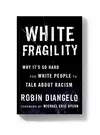- 6
- 2
Live feed of the best moderator on the internet, straight into your veins.
Here's todays official post from the BARDCHIVE:
05/06/15 09:58:15 with a score of -10: https://old.reddit.com/r/videos/comments/3524dm/white_father_robbed_and_shot_despite_pleading_for/cr09e9a/?context=8
Oh, hooray! I am so glad that you got the racist "FBI STATISTICS SHOW…" horseshit out of the way early.
Statistics aren't racist, but your interpretation of them is. If you actually bothered to think, rather than cherry-pick anything that seems to want to suck your Stormfront-stoked hard-on for hating black people, you might not get your peepee bit off so much.
https://dash.harvard.edu/bitstream/handle/1/3226952/sampson_racialethnicdisparities.pdf?sequence=2
This ^ study helps explain why your interpretation is a flat-out lie.
But that is for the benefit of the audience — I don't expect to change your mind, because I honestly am not willing to make it seem like I'm going to suck your peepee, which seems to be your sole motivation — self-aggrandisement and masturbating your ignorance and hatred in public.
- 1
- 2
- 1
- 2
GPT Summary: The latest column from Locus Magazine nails the irony of conservatives who fancy themselves paragons of delayed gratification while conveniently ignoring their utter failure in addressing climate change and inequality. Conservatives love to deride the supposed laziness of younger generations, equating impatience with personal failure and lauding themselves as models of financial discipline. They preach about waiting for the right moment to indulge in luxuries like avocado toast, which, in their warped logic, is a reward for the virtuous delay of immediate gratification. This delusion forms the crux of their moral hierarchy: they view themselves as the wise and patient, while relegating the less fortunate to the realm of foolishness and irresponsibility.
However, this self-serving ideology crumbles under scrutiny, particularly when examining the reality of wealth and privilege. The Stanford Marshmallow Experiment, once hailed as evidence of the innate superiority of the patient, has been debunked to reveal that those who waited for two marshmallows often came from privileged backgrounds, where promises were reliably kept. In contrast, the so-called impatient children were simply rationally responding to a history of broken promises. Figures like Charles Koch epitomize this hypocrisy: while they boast of long-term thinking, their actions—such as delaying climate action for personal gain—expose a blatant disregard for the future of the planet and humanity at large. In essence, the conservative myth of delayed gratification is just another veneer for maintaining and justifying their privileged status.
My latest column for Locus Magazine is "Marshmallow Longtermism"; it's a reflection on how conservatives self-mythologize as the standards-bearers for deferred gratification and making hard trade-offs, but are utterly lacking in these traits when it comes to climate change and inequality:
https://locusmag.com/2024/09/cory-doctorow-marshmallow-longtermism/
Conservatives often root our societal ills in a childish impatience, and cast themselves as wise adults who understand that "you can't get something for nothing." Think here of the memes about lazy kids who would rather spend on avocado toast and fancy third-wave coffee rather than paying off their student loans. In this framing, poverty is a consequence of immaturity. To be a functional adult is to be sober in all things: not only does a grownup limit their intoxicant intake to head off hangovers, they also go to the gym to prevent future health problems, they save their discretionary income to cover a down-payment and student loans.
This isn't asceticism, though: it's a mature decision to delay gratification. Avocado toast is a reward for a life well-lived: once you've paid off your mortgage and put your kid through college, then you can have that oat-milk latte. This is just "sound reasoning": every day you fail to pay off your student loan represents another day of compounding interest. Pay off the loan first, and you'll save many avo toasts' worth of interest and your net toast consumption can go way, way up.
Cleaving the world into the patient (the mature, the adult, the wise) and the impatient (the childish, the foolish, the feckless) does important political work. It transforms every societal ill into a personal failing: the prisoner in the dock who stole to survive can be recast as a deficient whose partying on study-nights led to their failure to achieve the grades needed for a merit scholarship, a first-class degree, and a high-paying job.
Dividing the human race into "the wise" and "the foolish" forms an ethical basis for hierarchy. If some of us are born (or raised) for wisdom, then naturally those people should be in charge. Moreover, putting the innately foolish in charge is a recipe for disaster. The political scientist Corey Robin identifies this as the unifying belief common to every kind of conservativism: that some are born to rule, others are born to be ruled over:
https://pluralistic.net/2020/08/01/set-healthy-boundaries/#healthy-populism
This is why conservatives are so affronted by affirmative action, whose premise is that the absence of minorities in the halls of power stems from systemic bias. For conservatives, the fact that people like themselves are running things is evidence of their own virtue and suitability for rule. In conservative canon, the act of shunting aside members of dominant groups to make space for members of disfavored minorities isn't justice, it's dangerous "virtue signaling" that puts the childish and unfit in positions of authority.
Again, this does important political work. If you are ideologically committed to deregulation, and then a giant, deregulated sea-freighter crashes into a bridge, you can avoid any discussion of re-regulating the industry by insisting that we are living in a corrupted age where the unfit are unjustly elevated to positions of authority. That bridge wasn't killed by deregulation - it's demise is the fault of the DEI hire who captained the ship:
The idea of a society made up of the patient and wise and the impatient and foolish is as old as Aesop's "The Ant and the Grasshopper," but it acquired a sheen of scientific legitimacy in 1970, with Walter Mischel's legendary "Stanford Marshmallow Experiment":
https://en.wikipedia.org/wiki/Stanford_marshmallow_experiment
In this experiment, kids were left alone in a locked room with a single marshmallow, after being told that they would get two marshmallows in 15 minutes, but only if they waited until them to eat the marshmallow before them. Mischel followed these kids for decades, finding that the kids who delayed gratification and got that second marshmallow did better on every axis - educational attainment, employment, and income. Adult brain-scans of these subjects revealed structural differences between the patient and the impatient.
For many years, the Stanford Marshmallow experiment has been used to validate the cleavage of humanity in the patient and wise and impatient and foolish. Those brain scans were said to reveal the biological basis for thinking of humanity's innate rulers as a superior subspecies, hidden in plain sight, destined to rule.
Then came the "replication crisis," in which numerous bedrock psychological studies from the mid 20th century were re-run by scientists whose fresh vigor disproved and/or complicated the career-defining findings of the giants of behavioral "science." When researchers re-ran Mischel's tests, they discovered an important gloss to his findings. By questioning the kids who ate the marshmallows right away, rather than waiting to get two marshmallows, they discovered that these kids weren't impatient, they were rational.
The kids who ate the marshmallows were more likely to come from poorer households. These kids had repeatedly been disappointed by the adults in their lives, who routinely broke their promises to the kids. Sometimes, this was well-intentioned, as when an economically precarious parent promised a treat, only to come up short because of an unexpected bill. Sometimes, this was just callousness, as when teachers, social workers or other authority figures fobbed these kids off with promises they knew they couldn't keep.
The marshmallow-eating kids had rationally analyzed their previous experiences and were making a sound bet that a marshmallow on the plate now was worth more than a strange adult's promise of two marshmallows. The "patient" kids who waited for the second marshmallow weren't so much patient as they were trusting: they had grown up with parents who had the kind of financial cushion that let them follow through on their promises, and who had the kind of social power that convinced other adults - teachers, etc - to follow through on their promises to their kids.
Once you understand this, the lesson of the Marshmallow Experiment is inverted. The reason two marshmallow kids thrived is that they came from privileged backgrounds: their high grades were down to private tutors, not the choice to study rather than partying. Their plum jobs and high salaries came from university and family connections, not merit. Their brain differences were the result of a life free from the chronic, extreme stress that comes with poverty.
Post-replication crisis, the moral of the Stanford Marshmallow Experiment is that everyone experiences a mix of patience and impatience, but for the people born to privilege, the consequences of impatience are blunted and the rewards of patience are maximized.
Which explains a lot about how rich people actually behave. Take Charles Koch, who grew his father's coal empire a thousandfold by making long-term investments in automation. Koch is a vocal proponent of patience and long-term thinking, and is openly contemptuous of publicly traded companies because of the pressure from shareholders to give preference to short-term extraction over long-term planning. He's got a point.
Koch isn't just a fossil fuel baron, he's also a wildly successful ideologue. Koch is one of a handful of oligarchs who have transformed American politics by patiently investing in a kraken's worth of think tanks, universities, PACs, astroturf organizations, Star chambers and other world-girding tentacles. After decades of gerrymandering, voter suppression, court-packing and propagandizing, the American billionaire class has seized control of the US and its institutions. Patience pays!
But Koch's longtermism is highly selective. Arguably, Charles Koch bears more personal responsibility for delaying action on the climate emergency than any other person, alive or dead. Addressing greenhouse gasses is the most grasshopper-and-the-ant-butt crisis of all. Every day we delayed doing something about this foreseeable, well-understood climate debt added sky-high compounding interest. In failing to act, we saved billions - but we stuck our future selves with trillions in debt for which no bankruptcy procedure exists.
By convincing us not to invest in retooling for renewables in order to make his billions, Koch was committing the sin of premature avocado toast, times a billion. His inability to defer gratification - which he imposed on the rest of us - means that we are likely to lose much of world's coastal cities (including the state of Florida), and will have to find trillions to cope with wildfires, zoonotic plagues, and hundreds of millions of climate refugees.
Koch isn't a serene Buddha whose ability to surf over his impetuous attachments qualifies him to make decisions for the rest of us. Rather, he - like everyone else - is a flawed vessel whose blind spots are just as stubborn as ours. But unlike a person whose lack of foresight leads to drug addiction and petty crimes to support their habit, Koch's flaws don't just hurt a few people, they hurt our entire species and the only planet that can support it.
The selective marshmallow patience of the rich creates problems beyond climate debt. Koch and his fellow oligarchs are, first and foremost, supporters of oligarchy, an intrinsically destabilizing political arrangement that actually threatens their fortunes. Policies that favor the wealthy are always seeking an equilibrium between instability and inequality: a rich person can either submit to having their money taxed away to build hospitals, roads and schools, or they can invest in building high walls and paying guards to keep the rest of us from building guillotines on their lawns.
Rich people gobble that marshmallow like there's no tomorrow (literally). They always overestimate how much bang they'll get for their guard-labor buck, and underestimate how determined the poors will get after watching their children die of starvation and preventable diseases.
All of us benefit from some kind of cushion from our bad judgment, but not too much. The problem isn't that wealthy people get to make a few poor choices without suffering brutal consequences - it's that they hoard this benefit. Most of us are one missed student debt payment away from penalties and interest that add twenty years to our loan, while Charles Koch can set the planet on fire and continue to act as though he was born with the special judgment that means he knows what's best for us.
This work – excluding any serialized fiction – is licensed under a Creative Commons Attribution 4.0 license. That means you can use it any way you like, including commercially, provided that you attribute it to me, Cory Doctorow, and include a link to pluralistic.net.
https://creativecommons.org/licenses/by/4.0/
Quotations and images are not included in this license; they are included either under a limitation or exception to copyright, or on the basis of a separate license. Please exercise caution.
- 1
- 2
- 1
- 2
- 5
- 2
No absolute case for this. It involves MFC to determine treatment for myeloid neoplasms in regard to AML. There is a recent article that came out that uses those buzzwords that is free for everybody to read and all you have to do is link the article. No prognosis, no treatment plan, just link the article or have semi sufficient info about the topic to win this think like a doctor.
- 1
- 2
- 1
- 2
Dear How to Do It,
I'm in desperate need of position suggestions from an expert, and not the far reaches of the internet! I (cis woman) relatively recently started having s*x with my GF, a relatively sexually inexperienced person (they/them). I'm also FWB with a physically disabled person (they/them). Both are fully aware of the other, we're poly and we communicate, just stating that for the record.
Both of my partners have peepees. Every single peepee-owning sexual partner I've had in my life has slipped out of me---I move a lot, and apparently get wetter than most of my partners' previous partners, so this doesn't surprise me. I like a giggle during s*x and it's not like I mind the extra stimulation on my clit! However I know my GF is a little shy about their inexperience, and that they get a little flustered in the moment if we don't get the angles quite right, and I'd like to give them a little gentle guidance until they're more comfortable with how we work together. Our best luck has been to prop my butt up on a pillow and push one or both of my legs up while we face each other.
My FWB is disabled and not always able to make a lot of active movements during s*x (sometimes they're able to rail me, sometimes not). My biggest problem is that when I'm riding them their during stronger physical symptom days, I have trouble keeping myself balanced, up, and on all without using their body for support---it's like if I try to reach the bed with one hand, I slip off their peepee or lose my leverage (bad symptom days mean I can't put too much pressure in one spot, and that they may not have the strength to help support my thighs or butt).
I am a fat woman with, primarily, a big belly and some thicker thighs, so I take up a bit of space from the front. A lot of s*x advice is aimed at skinny people and is not always super comfortable when you have to factor in a belly! Any position ideas I can subtly but confidently introduce to my GF, and any tips for riding peepee better when I'm a dizzy girl who needs to create support to stop from falling?
---I know part of the answer is "do core exercises and leg day"
Dear Core Exercises and Leg Day,
For help with your question, I reached out to Hanne Blank Boyd, author of Big Big Love: A S*x and Relationships Guide for People of Size (and Those Who Love Them) and writer of the Reasons Not to Quit substack. She had a lot of ideas, which I'm sharing in full below. It's a good thing that she delivered, too, because I was going to suggest installing a grab bar on the wall near your bed, which may have been less than aesthetically pleasing (though probably fine if you have something like a play room with a bunch of different s*x options like a sling or a rack of toys). Don't try that before trying these much simpler ideas courtesy of Boyd:
My best advice for this person is to consider positioning with a view toward what firm/supportive structures are nearby or can be nearby. For instance, instead of positioning themselves with their heads toward the head of the bed and feet toward the foot, if there is a wall at the head of the bed or a sturdy headboard, positioning so that they are alongside that wall/headboard and can use it for support is an option. So is putting a chair beside the bed, with the chair back toward the edge of the bed---again a thing you can hang on to and use for support.\
A pillow under the butt of the person on the bottom also can help to create more space both for bigger belly and bigger thighs for the person on top. If that's not possible, consider reverse cowgirl---if the person on top is facing the other person's feet that usually makes more room for bellies/thighs. The support issue remains, but can be ameliorated with some firm cushions to either side (couch cushions can be great, or yoga bolsters).
I want to commend you for being as in touch with your partners' feelings and limitations as you are. You sound truly considerate and connected. If you find yourself needing more guidance, keep in mind that Boyd is available for one-on-one consulting "for people looking for guidance and support with regard to medical and body neutrality concerns." More info here.



 s or cute twinks bears only
s or cute twinks bears only






 Proud Trublu Subscriber
Proud Trublu Subscriber

































.webp?h=8)














 Diversity Is Our Strength
Diversity Is Our Strength 



